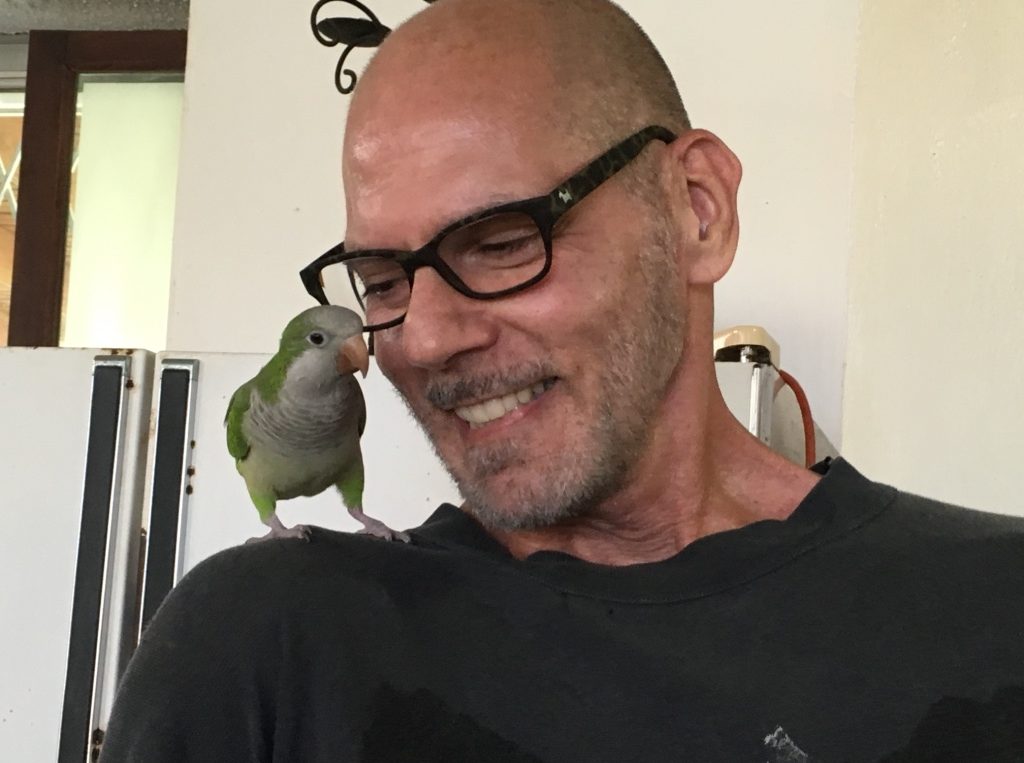Fourty-three days and counting without electricity
 Aníbal Llende, photographed with his pet parrot Orpheus, shares electricity with his neighbors. His house has become a lifeline.
Aníbal Llende, photographed with his pet parrot Orpheus, shares electricity with his neighbors. His house has become a lifeline.
Well over a month after Hurricane Maria struck Puerto Rico, residents are still without power. Márel Malaret reports on how solidarity with friends, neighbors, and relatives has kept spirits lifted.
Márel Malaret teaches the history of film and documentary filmmaking on the faculty of Escuela de Comunicación, at Puerto Rico’s University of the Sacred Heart.
I wake up to the buzzing of mosquitoes. In the aftermath of Maria, they are a plague everywhere you go. There’s no air conditioning or ceiling fan to keep them–or the heat–away. I hear the same complaint everywhere: We can’t sleep much.
It’s day 43 without electricity, and I have to go buy breakfast. It’s becoming expensive not to have a refrigerator running.
Actually, it’s been 53 days if you take into account the 10 days spent in the dark after Hurricane Irma, which barely touched us. It was an ominous rehearsal of what lay ahead.
Almost everything we do requires electricity. We are totally dependent on it, from basic needs like keeping food fresh in our houses to the complexity of running a hospital. When night falls, total darkness brings an inevitable sense of insecurity.
Solidarity with neighbors, relatives, and friends, which has always been part of our social fabric, is what has kept many of us from total despair.
“It became a neighborhood event,” says my friend Aníbal Llende, who lives in Bayamón, explaining how he was standing in his front yard with two neighbors when another neighbor who lives two houses behind him asked if he wanted to connect his house to the neighbor’s generator. “The other two neighbors stared at me,” he says. “It was obvious I could not refuse the offer, so I said to one, ‘go get your insulin,’ and to the other, ‘bring plastic water bottles.’”
That neighbor, who happens to be a Vietnam veteran, ran an electric cord from his house through Aníbal’s backyard and into the kitchen window to plug in the refrigerator and freezer. Aníbal was able to access some electricity, and is keeping other neighbors’ insulin in his fridge. He is helping the neighbor with the generator pay for diesel.
His house has become a lifeline. People come over to charge their cell phones and freeze water bottles.
Yet, it’s expensive to keep generators going and sometimes they fail. And help can only go so far. Another friend is climbing up 17 floors to care for an elderly parent. For now, we help one another as much as we can while wait for the power to come back on.
Help us meet the most critical needs of people struggling to survive in Puerto Rico.